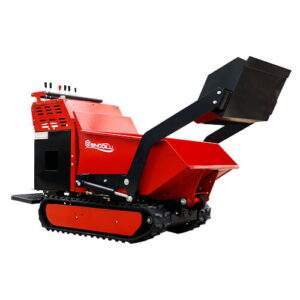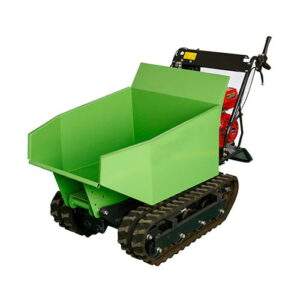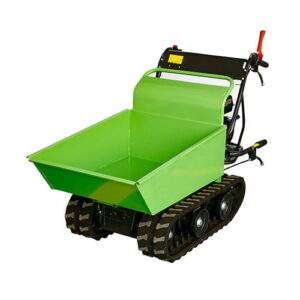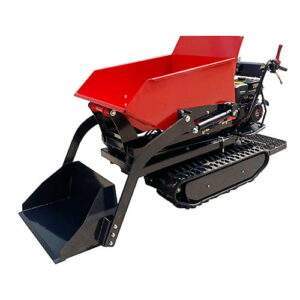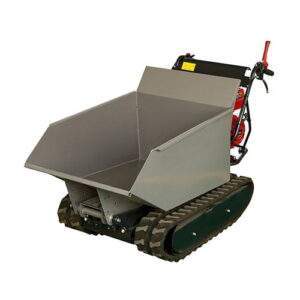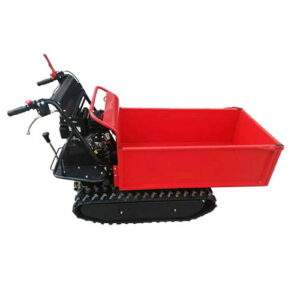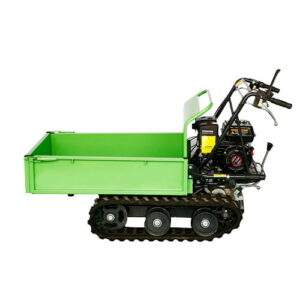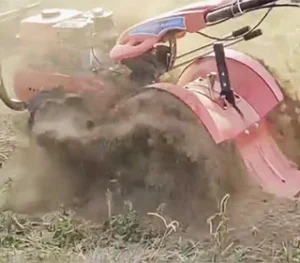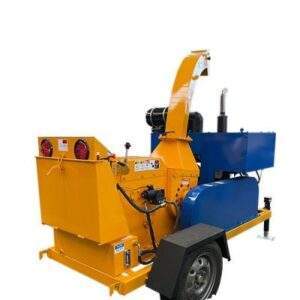How to Choose the Perfect Dumper Truck for Sale: A Comprehensive Checklist
Introduction
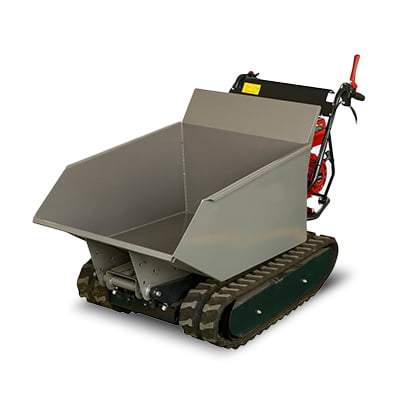
Investing in a dumper truck for sale is a significant decision for any construction or transportation business. With numerous options available in the market, selecting the perfect dumper truck requires careful consideration and evaluation. In this comprehensive guide, we’ll provide you with a detailed checklist to help you navigate the process of choosing the ideal dumper truck for your specific needs and budget.
Determining Your Requirements
Before diving into the purchasing process, it’s crucial to assess your requirements thoroughly to ensure you choose the right dumper truck for sale that meets your specific needs. Start by considering the type of materials you’ll be transporting. Different materials, such as gravel, sand, construction debris, or agricultural produce, have varying weight, density, and handling characteristics, which can influence your choice of dumper truck.
Next, evaluate the terrain you’ll be navigating. If your job sites include rugged, uneven, or off-road conditions, you may need a dumper truck with superior suspension, robust tires, and enhanced maneuverability. Conversely, if you’ll primarily be operating on paved roads or within urban environments, a truck designed for smooth surface operation might be more appropriate.
Another critical factor is the desired payload capacity. Determine the typical volume and weight of loads you plan to transport regularly. This will help you decide on the appropriate size and load-bearing capacity of the dumper truck. Overloading a truck can lead to excessive wear and tear, increased maintenance costs, and potential safety hazards, so it’s essential to match the truck’s capabilities with your load requirements accurately.
Additionally, think about the frequency and distance of your transport operations. If you need to make frequent trips over long distances, fuel efficiency and engine performance become more critical. Assessing these aspects will help you choose a dumper truck that not only meets your immediate operational needs but also supports long-term efficiency and cost-effectiveness.
Evaluating Different Types of Dumper Trucks
Dumper trucks are available in various types, each designed to excel in specific applications and environments. Understanding the advantages and limitations of each type is crucial for selecting the most suitable dumper truck for your needs. Let’s explore the features and capabilities of articulated, rigid, and mini dumpers in detail:
Articulated Dumpers: Articulated dumpers feature a pivot joint between the cab and the dump body, allowing for enhanced maneuverability and stability on uneven terrain. These trucks are highly versatile and excel in off-road applications where maneuvering in tight spaces is essential. The articulated design enables them to navigate rough terrain with ease, making them ideal for construction, mining, and earthmoving projects. However, articulated dumpers typically have a lower load capacity compared to rigid dumpers, which may limit their suitability for certain heavy-duty tasks.
Rigid Dumpers: Rigid dumpers are characterized by a single chassis frame, offering superior load capacity and durability for heavy-duty applications. These trucks are commonly used in large-scale mining operations, quarrying, and major construction projects where high volumes of materials need to be transported over long distances. Rigid dumpers boast impressive load-carrying capabilities and robust construction, making them suitable for handling large quantities of heavy materials. However, their lack of articulation limits their maneuverability, making them less suitable for navigating tight spaces or uneven terrain.
Mini Dumpers: Mini dumpers are compact, lightweight vehicles designed for versatility and maneuverability in confined spaces. These trucks are commonly used in landscaping, gardening, and small-scale construction projects where access is limited. Mini dumpers offer a balance of agility and load capacity, making them ideal for transporting materials in narrow alleys, backyard gardens, or interior spaces. While mini dumpers may have lower load capacities compared to their larger counterparts, their compact size and maneuverability make them invaluable for tasks that require precision and access to hard-to-reach areas.
Assessing Performance and Efficiency
When selecting a dumper truck for sale, performance and efficiency are paramount considerations that can significantly impact your operations and bottom line. It’s essential to evaluate various factors that contribute to the overall effectiveness of the vehicle, including engine power, fuel efficiency, and loading/unloading capabilities.
Engine Power: The engine power of a dumper truck directly influences its performance, especially when handling heavy loads or operating in challenging terrain. Look for trucks equipped with powerful engines that deliver ample torque and horsepower to ensure smooth acceleration, reliable operation, and efficient material transport. High-performance engines not only enhance productivity but also contribute to fuel efficiency by optimizing power output.
Fuel Efficiency: Fuel efficiency is a critical factor that can affect the operational costs of a dumper truck over its lifespan. Choose a truck with advanced engine technology and fuel-efficient systems that minimize fuel consumption without compromising performance. Features such as electronic fuel injection, turbocharging, and variable valve timing can help optimize fuel efficiency, reducing operating expenses and environmental impact.
Loading/Unloading Capabilities: The loading and unloading capabilities of a dumper truck play a significant role in determining its productivity and efficiency on the job site. Look for trucks equipped with innovative loading mechanisms, such as hydraulic lift systems or automated tipping beds, that streamline the loading and unloading process. These features not only save time but also reduce the manual effort required, minimizing operator fatigue and maximizing productivity.
Considering Maintenance and Serviceability
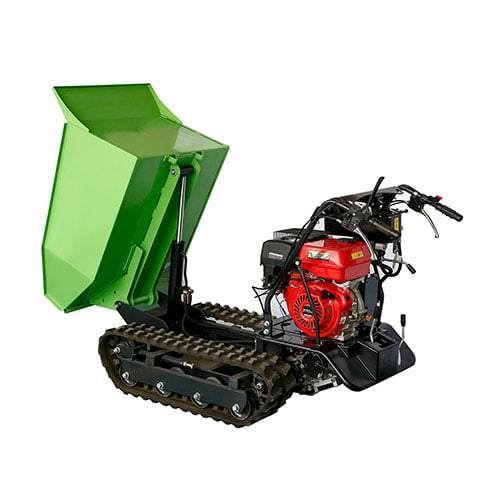
Maintenance and serviceability are crucial factors to consider when owning a dumper truck. Assessing the ease of maintenance and availability of spare parts for different models can significantly impact the truck’s reliability and uptime. Look for features that simplify routine maintenance tasks and minimize downtime, ensuring smooth operations throughout the vehicle’s lifespan.
Ease of Maintenance: Evaluate the accessibility of service points and components on dumper trucks to determine the ease of maintenance. Trucks with conveniently located service points and easily accessible components make routine maintenance tasks, such as oil changes, filter replacements, and fluid checks, more straightforward and less time-consuming. This not only reduces downtime but also encourages regular maintenance, prolonging the truck’s lifespan and minimizing repair costs.
Availability of Spare Parts: Consider the availability of spare parts and components for different dumper truck models. Opt for trucks from reputable manufacturers with established supply chains for spare parts. Ensure that essential components, such as filters, belts, and hydraulic parts, are readily available from authorized dealers or aftermarket suppliers. A reliable supply of spare parts ensures timely repairs and minimizes downtime, keeping your dumper truck operational and productive.
User-Friendly Diagnostic Systems: Look for dumper trucks equipped with user-friendly diagnostic systems that facilitate troubleshooting and maintenance. Advanced onboard diagnostic systems can identify potential issues and provide real-time alerts to operators, enabling proactive maintenance and minimizing the risk of unexpected breakdowns. Features such as fault code display screens and self-diagnostics capabilities empower operators to address minor issues promptly, reducing the need for costly repairs and unplanned downtime.
Budgeting and Financing Options
Budget considerations play a significant role in the decision-making process when purchasing a dumper truck for sale. Determine your budget constraints and explore financing options available from dealerships or financial institutions. Consider factors such as upfront costs, operating expenses, and potential return on investment when evaluating the affordability of different dumper truck models. Balancing your budgetary constraints with the desired features and capabilities will help you make a well-informed decision.
| Budget Consideration | Description |
|---|---|
| Upfront Costs | The initial purchase price of the dumper truck, including any additional costs for optional features or customizations. |
| Financing Options | Explore available financing options from dealerships or financial institutions, such as loans, leases, or manufacturer financing programs. |
| Operating Expenses | Ongoing costs associated with operating the dumper truck, including fuel, maintenance, insurance, and repairs. |
| Potential ROI | Evaluate the potential return on investment by considering how the dumper truck will contribute to increased productivity, efficiency, and profitability. |
| Depreciation | Consider the depreciation rate of the dumper truck model over time, affecting its resale value and long-term cost of ownership. |
| Warranty and Support | Assess the warranty coverage and after-sales support offered by the manufacturer or dealer, which can impact long-term maintenance costs and reliability. |
| Fuel Efficiency | Fuel consumption rates and efficiency, which significantly influence operating costs over the lifespan of the dumper truck. |
| Maintenance Costs | Estimate the cost of routine maintenance, parts replacement, and potential repairs, factoring in the availability and cost of spare parts. |
| Insurance Costs | Insurance premiums for the dumper truck, which vary based on the truck’s value, usage, and the coverage level required. |
| Resale Value | Consider the potential resale value of the dumper truck in the future, which can offset the initial investment and impact overall cost of ownership. |
FAQ
Q: What is the difference between articulated and rigid dumper trucks?
A: Articulated dumper trucks feature a pivot joint between the cab and the dump body, providing enhanced maneuverability and stability on uneven terrain. Rigid dumper trucks, on the other hand, have a single chassis frame, offering greater load capacity and durability for heavy-duty applications.
Q: How do I determine the appropriate payload capacity for my dumper truck?
A: The payload capacity of a dumper truck depends on factors such as the type of materials being transported, the frequency of trips, and the terrain conditions. Consult with industry experts or dumper truck manufacturers to determine the optimal payload capacity for your specific requirements.
Q: What financing options are available for purchasing a dumper truck?
A: Financing options for purchasing a dumper truck may include loans from financial institutions, leasing arrangements, or manufacturer financing programs. Evaluate the terms and conditions of each option carefully to determine the most suitable financing solution for your business needs.
Conclusion
Choosing the perfect dumper truck for sale requires careful planning, evaluation, and consideration of various factors. By following the comprehensive checklist outlined in this guide, you can streamline the purchasing process and select a dumper truck that meets your specific requirements and budget. Investing in the right dumper truck will not only enhance your operational efficiency but also contribute to the success and growth of your business.

